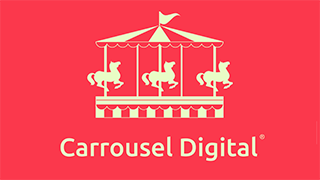Crown Commercial Service’s Vertical Application Solutions Framework offers software-focused solutions to customers to meet the specific needs of their industry, business application or services
Framework RM6259 provides solutions on software licences, associated hardware, app-related consultancy services, software support and maintenance.
In the context of the framework, ‘Vertical’ refers to software-based solutions that have been developed specifically or primarily with one particular customer type and use case in mind. Therefore, they are designed for a particular customer ‘vertical’, such as Local Government, Housing, Education etc. and are therefore less likely to be found being used outside of their intended scenario.
The framework will run from 7 March 2023 until 6 September 2025 and replaces the Data and Application Solutions framework.
The agreement is available to all public sector organisations including: government departments and their arm’s length bodies; devolved administrations; the wider public sector; and third sector organisations.
There is also a particular consideration for customers in the blue light, education, local authority and social care sectors.
The framework allows buyers to implement, test and provide a range of software solutions; buy cloud-hosted and on-premise software, or a combination of both, under one agreement; and access solution-essential hardware and professional services such as a server for a revenues and benefits software solution and integration with an existing records management system.
Lots
The framework includes 81 suppliers across five different lots.
Lot 1: Business Applications allows buyers to access services including revenue and benefits solution, payment processing and cash receipt and civil enforcement. This lot is primarily targeted towards Local Government customers.
Lot 2 covers Education, Community Health and Social Care Solutions and includes learning applications and platforms, academic scheduling and management solutions, education management system (EMS), community health and social care solutions, and enterprise health solutions. It is designed to enable local government, academic and health customers to access standalone or integrated solutions.
Lot 3 is for Housing, Environmental and Planning Solutions and includes the following services: environmental; planning; building control; local land changes; regulatory services; licensing; property or housing management; geographic information system (GIS); waste management solutions; and built environment.
Lot 4: Citizen Services provides library solutions; democratic and citizen engagement systems; museums systems; sports and recreation systems; registrar systems; and burials and crematoria solutions.
The final lot is for Blue Light solutions and includes the following services: investigation, intelligence, forensics (including digital forensics), case and custody applications; surveillance and reconnaissance; command and control, integrated command and control systems (ICCS); emergency response and crisis management; fraud detection; digital asset management; recording and audio-visual; and data analytics (including management information and business intelligence).
Buying
Depending on the needs of the purchasing organisation, services can be bought through further competition or direct award.
Direct award catalogue listings are available on the Government eMarketplace.
Expression of Interest (EOI) is also available, which allows an organisation to go to suppliers with their needs to understand their interest. Those suppliers who decline interest at EOI do not need to be invited to tender.
EOI can help refine the number of suppliers to those with the capacity and specific expertise you are seeking, enables you to more accurately determine the level of evaluation resource required for tender responses and can increase confidence in your timescales and requirements.
When running an EOI, you must send it to all suppliers on the lot, those who reply with a yes can then be invited to tender. Buyers are advised to allow enough time for responses. Five to ten days is suggested, even longer for complex procurements. Buyers must also ensure that there are no material changes to the requirements/Statement of Requirement or timescales given.
To run a further competition, there are two options available. The first is to run an EOI and then a further competition including those suppliers who have not declined their interest in the opportunity. The other option is to run a further competition to all suppliers on the lot.
CCS recommends taking part in pre-market engagement before going out to the suppliers on the agreement.
Criteria to consider include quality and price. Factors to consider when evaluating quality include: approach to delivery of the services/methodology, including the strategies, expertise, methods, materials, and procedures in the proposal and technical merit, including the competence, skills, and experience of the management, professional, and technical personnel proposed for the project. Other factors include ways of working, including the proposed management systems and methods, project management tools, software, touchpoints, etc. and social value (according to PPN 06/20, social value should account for a minimum of 10 per cent of award criteria in central government tenders).
To evaluate price, things to consider include: Professional Services charges, time and materials, including all costs over the duration of the contract including fixed capital costs, variable tender costs and special adjustments during the contract period; and maintenance and operating costs and software licence costs, including testing a range of licensing models (per user, per device, enterprise wide etc). You should also evaluate hardware costs (as part of a solutions) and support and maintenance costs.
More information on how to buy is available in the customer guide, which provides detailed instruction on the whole process, including how to prepare for tender, how to buy through direct award or further competition and what to do once you have chosen a supplier.
Direct award catalogue listings are available on the Government eMarketplace and there are flexible call-off lengths to suit specific needs. Support and maintenance options are available to help extend a product’s lifecycle.
Pricing
The framework covers a range of software solutions, spanning a diverse mix of pricing models and charging mechanisms. Therefore, only the supplier’s maximum day rate charges for professional services have been tested.
Buyers are encouraged to ask bidders to submit pricing in the most appropriate way for the tender. This could be, for example, bid pricing on a software licence cost basis, or a total cost of service. The CCS category team are able to help establish the most suitable pricing methodology for the requirements of each tender.
Benefits
The framework offers several benefits including providing a route to market to buy a wide range of software solutions that are designed to meet specific sector needs, for example, local authority revenues and benefits and providing fully supported solutions for cloud, on premise or hybrid (a combination of cloud and premise) systems.
Other benefits include fully supported solutions for cloud, on premise or hybrid (a combination of cloud and on premise) software systems and a route to market to buy a wide range of software solutions that have been designed to meet specific sector needs, for example local authority revenues and benefits.
All lots are available to all public sector customers, and the digital catalogue allows buyers to buy products with a simple ‘click and buy’ approach. Support and maintenance options are available via a digital catalogue, to help extend a product’s lifecycle and there is flexibility on call-off lengths to suit specific needs.
This framework has 81 suppliers across five different lots, offering buyers a wide choice. The detailed buyer guide and offers of support from CCS make it simple to buy from this framework for Vertical Application solutions.





